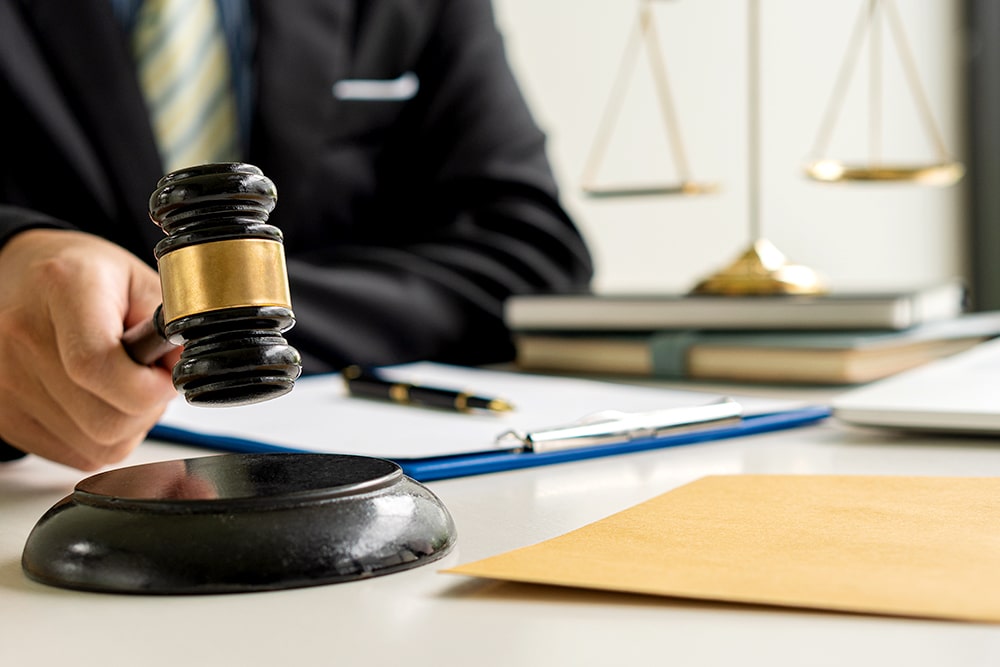What to Expect at a Workers’ Compensation Hearing

A workers’ compensation hearing is held to resolve disputes related to a workers’ compensation claim. Workers’ compensation is an insurance type that providess employees with benefits when they suffer illnesses or work-related injuries. When a dispute arises between the injured worker and their employer or the workers’ compensation insurance carrier, a hearing may be scheduled to resolve the issue.
Workers’ Compensation Hearing Events
A workers’ compensation hearing usually follows the format described below:
- Dispute Resolution: The hearing is scheduled when there is a disagreement regarding aspects of the workers’ compensation claim, such as the extent of the injury, the amount of benefits owed, or the need for medical treatment.
- Hearing Officer: The hearing is presided over by an administrative law judge, hearing officer, or another authorized individual appointed by the workers’ compensation board or administrative agency.
- Presentation of Evidence: Both the injured worker and the employer/insurance carrier have the opportunity to present evidence supporting their respective positions. This evidence may include medical records, accident reports, witness testimony, expert opinions, and any other relevant documentation.
- Testimony: The injured worker, as well as any witnesses, may be called to testify under oath. They will answer questions from their attorney, the opposing side, and the hearing officer. The testimony helps establish the facts surrounding the injury and the impact it has had on the worker’s life and ability to work.
- Cross-examination: After the initial testimony, the opposing side has the opportunity to cross-examine the witnesses. This allows them to challenge the credibility of the testimony, question the severity of the injury, or raise other issues relevant to the case.
- Closing Arguments: Once all evidence and testimony have been presented, both sides have the chance to make closing arguments summarizing their case and emphasizing key points.
- Decision: The hearing officer reviews the evidence, testimony, and applicable law to make a decision regarding the workers’ compensation claim. This decision may be made orally at the conclusion of the hearing or issued in writing at a later date.
- Appeals: If either party disagrees with the outcome of the hearing, they may have the right to appeal the decision to a higher authority, such as an appeals board or court, depending on the jurisdiction.
Should I Have Legal Representation at a Workers’ Compensation Hearing?
Having legal representation at a workers’ compensation hearing can be highly beneficial for several reasons:
- Knowledge of the Law: Workers’ compensation laws can be complex. A qualified attorney who specializes in workers’ compensation will have a thorough understanding of the applicable laws and regulations. They can help ensure that your rights are protected and that you receive the benefits you are entitled to under the law.
- Case Preparation: A skilled attorney will help you prepare your case thoroughly. They can gather evidence, obtain medical records, interview witnesses, and prepare you for testimony. This preparation is crucial for presenting a compelling case and maximizing your chances of success at the hearing.
- Negotiation Skills: In some cases, disputes regarding workers’ compensation claims can be resolved through negotiation before the hearing. An experienced attorney can handle negotiations with the insurance company or the employer on your behalf to attain a favorable settlement. If a settlement is not reached, they will be prepared to advocate for you at the hearing.
- Representation at the Hearing: During the hearing, your attorney will represent your interests and present your case effectively. They will cross-examine witnesses, challenge evidence presented by the opposing side, and make compelling arguments on your behalf. Having an attorney who is familiar with the hearing process can help alleviate stress and ensure that your case is presented in the best possible light.
- Appeals Process: If you disagree with the outcome of the hearing, you may have the right to appeal the decision. An attorney can advise you on whether an appeal is appropriate in your case and represent you throughout the appeals process.
While legal representation is not required at a workers’ compensation hearing, it can significantly improve your chances of a successful outcome. If you’re unsure whether you need an attorney, consider consulting with one to discuss your case and explore your options. Many workers’ compensation attorneys offer free consultations to evaluate your case and advise you on the best course of action.
Nevada Workers’ Compensation Lawyer
Jay Short, a seasoned Workers’ Compensation Attorney. With expertise in handling Nevada’s intricate workers’ compensation claims, Jay is committed to assisting individuals in obtaining the compensation they deserve for workplace injuries and illnesses. Our sole focus is ensuring that you receive the full benefits owed to you under Nevada law. Contact us for a complimentary consultation at (775) 786-2006 or reach out online at your convenience.
